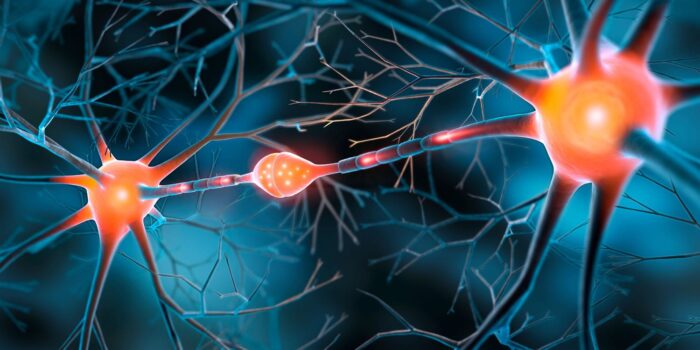A latest research has recognized potential early mind markers in infants that will point out a threat for future psychological well being issues. Researchers found that the microstructural complexity in particular prefrontal mind areas may very well be linked to increased destructive emotionality and decrease constructive emotionality in infants, offering insights into their future emotional and behavioral improvement. The findings have been printed in Biological Psychiatry.
Microstructural complexity refers back to the group of tiny constructions inside the mind, equivalent to neurons (nerve cells), axons (nerve fibers), and dendrites (branch-like extensions of neurons). It includes how densely packed these constructions are and the way they’re oriented or organized. Greater microstructural complexity can point out extra connections and pathways, which may have an effect on how the mind processes data and feelings.
Childhood emotional reactivity, which incorporates frequent and intense emotional responses, is a major issue within the improvement of future psychological well being points. Each constructive and destructive types of emotionality may be reliably assessed within the first months of life and function early behavioral indicators of vulnerability to psychological well being issues.
Excessive ranges of destructive emotionality in infants are related to later psychological well being points equivalent to melancholy, anxiousness, and behavioral issues, whereas low ranges of constructive emotionality are linked to behavioral inhibition and melancholy. Understanding the neural substrates of those emotional traits may also help determine early targets for stopping emergent psychopathology.
The research concerned 62 infants and their caregivers, recruited by means of numerous companies on the College of Pittsburgh. Infants underwent magnetic resonance imaging (MRI) at three months outdated to evaluate their mind microstructure.
Researchers used a method known as neurite orientation dispersion and density imaging (NODDI) to measure the density and orientation of neurites (axons and dendrites) in several prefrontal cortex (PFC) subregions. These subregions included areas related to salience notion, determination making, motion choice, and attentional processes. Moreover, caregivers accomplished a questionnaire assessing their infants’ destructive and constructive emotionality at three and 9 months outdated.
The researchers discovered important relationships between the microstructural complexity in particular PFC subregions and infants’ emotionality. Greater neurite density and orientation dispersion within the rostral anterior cingulate cortex (ACC) and caudal ACC have been related to better destructive emotionality at three months. These findings counsel that elevated microstructural complexity in these areas could result in better integration with different neural networks, leading to heightened sensitivity to destructive exterior cues and better destructive emotionality.
Equally, increased neurite orientation dispersion within the lateral orbitofrontal cortex (OFC) was related to better destructive emotionality at 9 months, indicating that this mind area’s microstructural complexity may contribute to sustained destructive emotionality over time. However, increased neurite orientation dispersion within the dorsolateral PFC was linked to decrease constructive emotionality at three months, suggesting that elevated complexity on this area may result in overregulation of constructive feelings.
In different phrases, the findings present proof that the group and density of tiny constructions in particular components of the mind are necessary components in figuring out how infants expertise and regulate their feelings. Infants with extra complicated mind microstructures in sure areas are inclined to have stronger destructive emotional reactions and fewer constructive emotional responses. This early mind improvement may affect their emotional conduct as they develop, highlighting the importance of mind construction in shaping emotional well being from a younger age.
Total, these findings spotlight the significance of early mind improvement in emotional well being and supply a possible pathway for early detection and intervention methods geared toward selling higher psychological well being outcomes from infancy by means of maturity.
Future analysis ought to purpose to incorporate extra nuanced measures of socioeconomic standing, equivalent to neighborhood deprivation and household earnings, to raised perceive the environmental components influencing toddler mind improvement and emotionality. Incorporating laboratory-based, independently noticed measures of toddler conduct by educated consultants may additionally improve the reliability of emotionality assessments.
The research, “Early Infant Prefrontal Cortical Microstructure Predicts Present and Future Emotionality,” was authored by Yicheng Zhang, Layla Banihashemi, Amelia Versace, Ashok Panigrahy, Alison E. Hipwell, and Mary L. Phillips.





